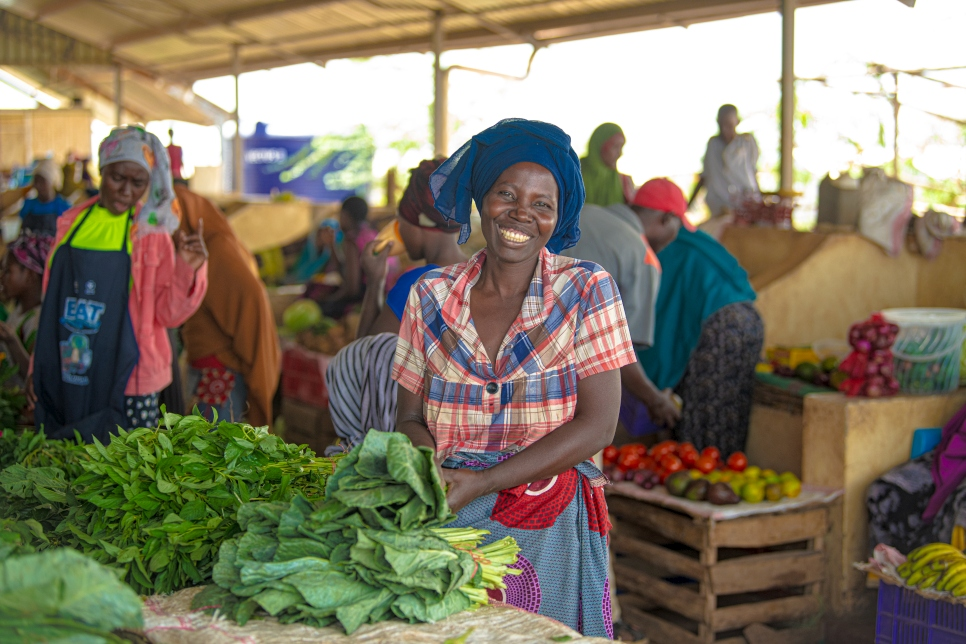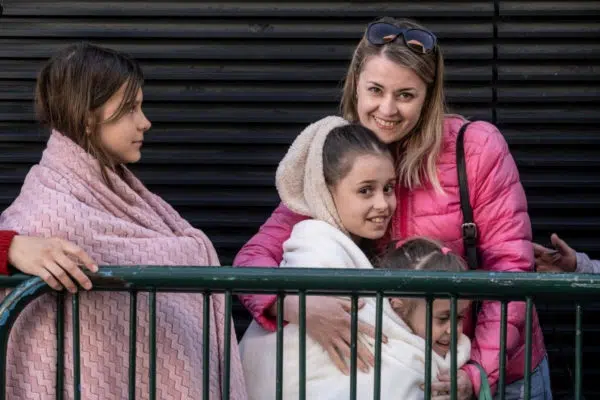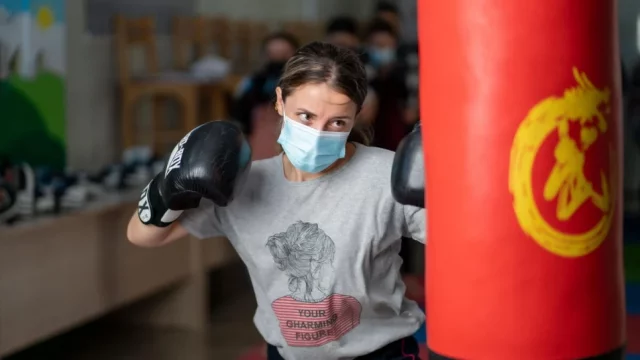
Serafina, a Burundian refugee living in Kenya’s Kalobeyei settlement, opened a vegetable stall in 2019 with a grant from UNHCR’s private sector partners. © UNHCR/Pauline Omagwa
GENEVA – The International Finance Corporation (IFC) and UNHCR, the UN Refugee Agency, today announced a joint initiative to create inclusive economic opportunities that will benefit refugees and their host communities. Among other goals, the initiative aims to mobilize private sector projects over the next five years to demonstrate the viability of investments in forced displacement contexts.
Forced displacement is a growing crisis that is too large and complex for governments and humanitarian agencies to solve alone. By mid-2022, over 103 million people were forcibly displaced worldwide, with 74 per cent of them hosted in low- and middle-income countries.
The Joint Initiative will promote knowledge sharing to facilitate the engagement of private sector stakeholders in refugee-hosting areas. The initiative will tap into private sector expertise, financing, and innovation to improve the quality of life for those forcibly displaced and their hosts, through job creation, better and affordable services, financing infrastructure, and much-needed capital for small and medium enterprises.
“The private sector has much to give and much to gain in frontier markets,” said IFC Managing Director Makhtar Diop. “Businesses create jobs and provide sustainable access to goods and essential services that benefit refugees and their hosts. The launch of this new IFC-UNHCR Joint Initiative represents our commitment to scale up our support and create sustainable private sector solutions for some of the most vulnerable communities on the planet.”
“This is an important step towards greater responsibility-sharing and finding practical solutions for those forced to flee,” said UN High Commissioner for Refugees Filippo Grandi. “In the face of multiple crises globally, we must work even closer with the private sector to leverage their strengths and desire to help. I thank IFC for its leadership and commitment to a brighter future for the displaced and their hosts.”
IFC and UNHCR have been working together since 2016 to improve the lives of those forcibly displaced and their hosts, implementing projects in Brazil, Colombia, Ethiopia, Jordan, Kenya, Uganda, Iraq, and Lebanon. For example, in Kenya, joint IFC and UNHCR work helped attract private businesses to the Kakuma Kalobeyei refugee hosting area, creating job opportunities and enhancing access to services for refugees and host communities. In Colombia, the collaboration has enabled access to financial products and services for Venezuelan refugees and migrants in the country, allowing them to contribute to Colombia’s economy.
Today’s announcement will allow IFC and UNHCR to harness their global resources and scale their efforts to help people who are forcibly displaced to live more dignified lives, while contributing to the development of local economies and markets, in alignment with the spirit of the Global Compact on Refugees.
For more information, please contact:
- In Washington: Yusuke Shimizu,+ 202-440-7518, yshimizu1@ifc.org
- In Geneva: Olga Sarrado Mur, +41 79-740-2327, sarrado@unhcr.org
- In Ottawa, Levon Sevunts, +1 613-286-6975, sevunts@unhcr.org
About UNHCR
UNHCR, the UN Refugee Agency, protects people forced to flee their homes because of conflict and persecution. We work in over 130 countries, protecting millions of people by responding with life-saving support, safeguarding fundamental human rights, and helping them build a better future. For more information, visit www.unhcr.org
About IFC
IFC — a member of the World Bank Group — is the largest global development institution focused on the private sector in emerging markets. We work in more than 100 countries, using our capital, expertise, and influence to create markets and opportunities in developing countries. In fiscal year 2022, IFC committed a record $32.8 billion to private companies and financial institutions in developing countries, leveraging the power of the private sector to end extreme poverty and boost shared prosperity as economies grapple with the impacts of global compounding crises. For more information, visit www.ifc.org.





